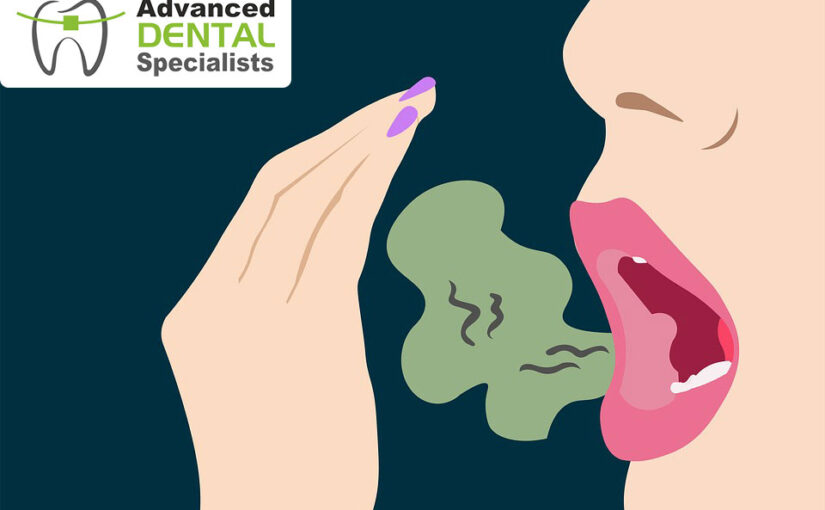What You Can Do If You Have Bad Breath
It’s simple to improve your breath while also keeping your teeth and gums healthy. Try these easy steps to keep your mouth feeling fresh and clean.
1) Brush and floss more frequently.
Plaque, the sticky film that forms on your teeth, collects bacteria that cause bad breath. Food that has become trapped adds to the problem.
Brush your teeth at least twice a day and floss every day.
But don’t go overboard. Brushing too hard can wear down your teeth, leaving them vulnerable to decay.
2) Rinse your mouth thoroughly.
Aside from freshening your breath, mouthwash provides additional protection by removing bacteria. A refreshing minty flavour can make you feel good. However, make certain that the mouthwash you choose kills the germs that cause bad breath. Don’t just mask the odour. Stop bad breath at its source by rinsing with a good mouthwash on a daily basis.
Swishing your mouth with plain water after eating can also help your breath. It can remove food particles that have become lodged in your teeth.
3) Gently scrape your tongue.
The coating that naturally forms on your tongue can serve as a breeding ground for stinky bacteria. Brush your tongue gently with your toothbrush to remove them.
If your brush is too large to reach the back of your tongue comfortably, try a scraper.”
They are specifically designed to apply even pressure across the surface of the tongue.
4) Avoid foods that cause bad breath.
Onions and garlic are both major offenders. Brushing your teeth after eating them, on the other hand, is ineffective.
According to dentist Richard Price, DMD, a spokesperson for the American Dental Association, the substances that cause their bad odours enter your bloodstream and travel to your lungs, where you breathe them out.
What is the most effective way to solve this problem? Don’t eat them or, at the very least, avoid them before going to work or seeing friends.
5) Get rid of your tobacco habit.
In addition to causing cancer, smoking can harm your gums, stain your teeth, and cause bad breath.
Nicotine patches, which are available over-the-counter, can help reduce the desire to smoke. Make an appointment with your doctor to discuss quit-smoking programmes or prescription medications that can help you quit smoking for good.
6) Instead of mints after dinner, chew gum.
Sugar is a favourite of the bacteria in your mouth. It’s used to make acid. This wears your teeth down and causes bad breath. Instead, chew sugarless gum.
“Gum stimulates saliva,” Quinones says, “which is the mouth’s natural defence mechanism against plaque acids, which cause tooth decay and bad breath.”
7) Maintain the health of your gums.
Bad breath is caused by gum disease. Bacteria congregate in pockets at the base of teeth, causing an odor. If your dentist suspects you have gum disease, he or she may refer you to a periodontist, who specializes in treating it.
8) Wet your mouth.
If you don’t produce enough saliva, you can develop tooth decay and bad breath. Drink plenty of water throughout the day if your mouth is dry.
Suck on sugar-free hard candy or chew sugar-free gum. Use a humidifier at night to keep the air in your home moist.
9) Consult your doctor.
Make an appointment with your doctor if your bad breath persists despite your best efforts. They’ll look to see if your issues are the result of a medical condition.

